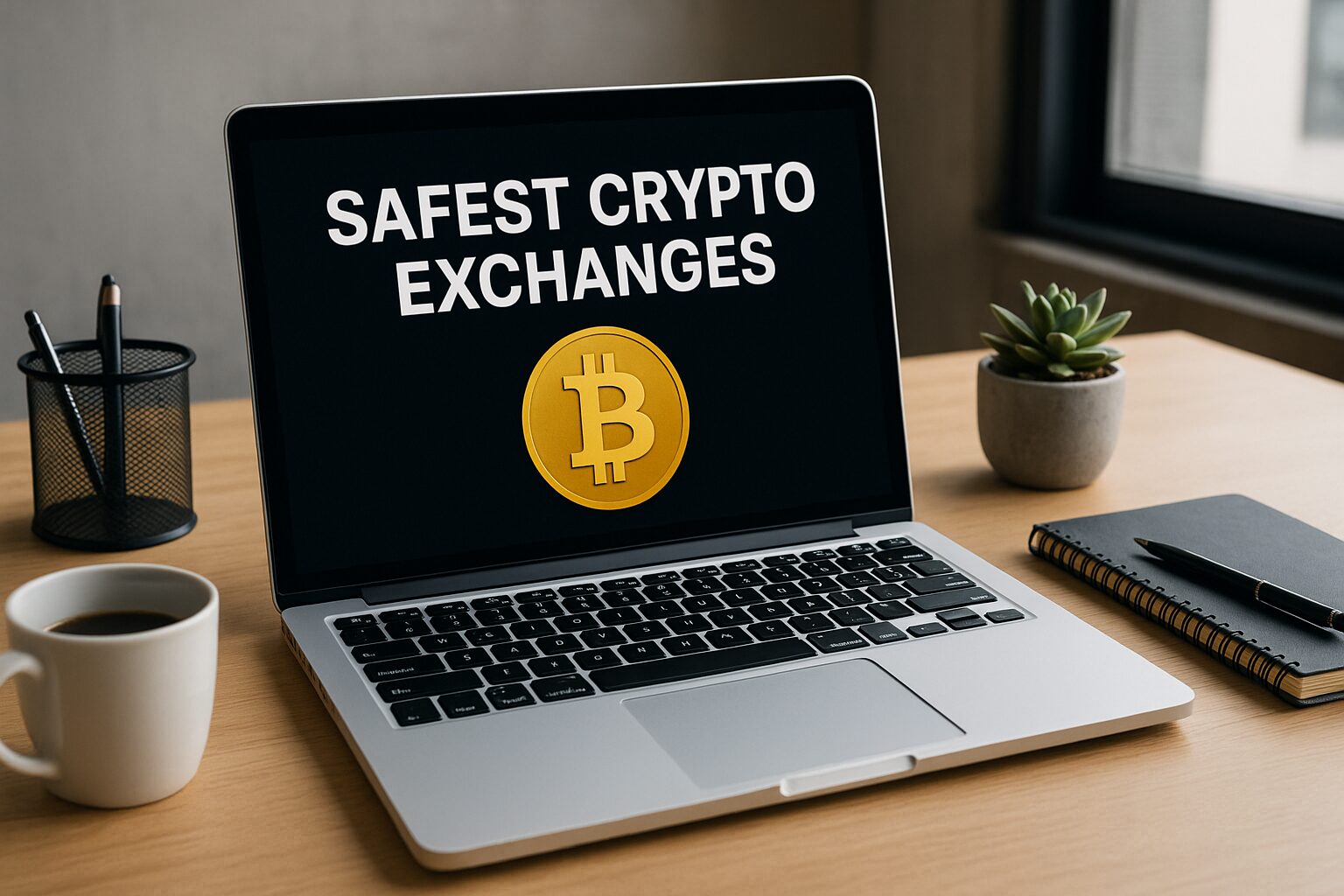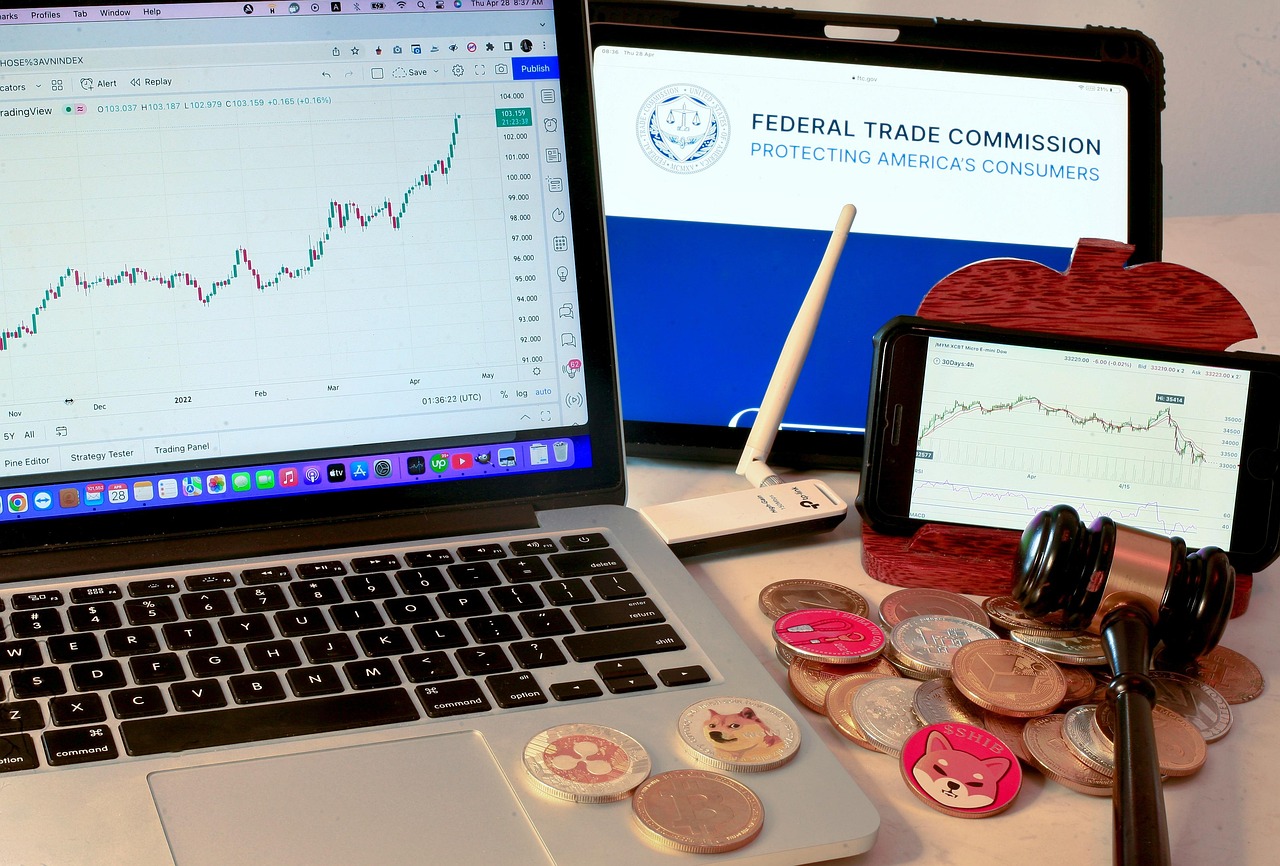In today’s fast-changing world of digital assets, choosing the safest crypto exchanges has never been more important. Crypto offers exciting opportunities for investors, but it also comes with risks — from exchange hacks and scams to phishing attacks and rug pulls.
According to a 2024 report by Chainalysis, over $1.5 billion worth of crypto was stolen from exchanges and users through cyberattacks and scams. This highlights one undeniable truth — security should always come before profits.
Choosing the safest crypto exchange is the first and most crucial step to protecting your investments. Whether you’re a beginner or an experienced trader, your platform’s safety directly affects your peace of mind and financial future.
What are Cryptocurrency Exchanges?
A cryptocurrency exchange is a website where people can buy, sell, trade, and sometimes store digital currencies like Bitcoin, Ethereum, and others. They help buyers and sellers find each other by setting prices, making sure there is enough cash on hand, and offering trade tools similar to those found on traditional stock exchanges. Exchanges can be centralized, which means that a company handles the site and user funds, or they can be decentralized, which means that trades happen directly between users through smart contracts and there is no central authority.
What Makes a Crypto Exchange “Safe”?
A safe crypto exchange is one that prioritizes security, compliance, and transparency above all else. It implements strong defenses against hacking attempts, protects users’ private keys, and follows strict regulations to ensure investor safety.
Key Security Factors to Look For
- Two-Factor Authentication (2FA)
Adds an extra security layer by requiring both your password and a verification code to access your account. - Cold Storage and Multi-Signature Wallets
The majority of user funds should be stored offline (cold wallets), away from hackers. Multi-signature wallets require multiple approvals before any withdrawal is processed. - Insurance Coverage for Digital Assets
Top exchanges like Coinbase and Gemini offer insurance for crypto assets stored on their platforms — protecting users from potential losses due to security breaches. - Regulatory Compliance and Licenses
Licensed exchanges are more trustworthy. Compliance with financial authorities such as the SEC, FCA, or MAS ensures they follow strict operational standards.
Why Security Should Be Your Top Priority
The crypto market has seen its fair share of major security incidents. From the Mt. Gox hack in 2014 (worth $450 million) to the FTX collapse in 2022, millions of users have lost their savings because they trusted unsafe platforms.
A trusted crypto exchange doesn’t just offer trading convenience — it ensures your assets are protected at every step.
Transparency, proof-of-reserves, and audits are now essential in evaluating whether a platform deserves your trust.
Graph: Historical Crypto Exchange Hacks and Losses (2017–2024)
| Year | Number of Major Hacks | Estimated Loss (USD) |
|---|---|---|
| 2017 | 6 | $300 million |
| 2018 | 10 | $1.1 billion |
| 2019 | 9 | $500 million |
| 2020 | 7 | $280 million |
| 2021 | 11 | $1.3 billion |
| 2022 | 9 | $2.0 billion |
| 2023 | 8 | $1.1 billion |
| 2024 | 5 | $800 million |
Source: Chainalysis, CipherTrace Reports
Top 7 Safest Crypto Exchanges in 2025
Let’s look at the most secure platforms trusted by millions of traders worldwide.
| Exchange | Key Features | Supported Coins | Fees | KYC Level | Insurance |
|---|---|---|---|---|---|
| Coinbase | Regulated in the U.S., FDIC-insured, cold storage | 250+ | 0.1%–0.6% | Required | Yes |
| Kraken | Strong security, proof-of-reserves | 200+ | 0.16%–0.26% | Required | Yes |
| Binance | SAFU insurance fund, global reach | 350+ | 0.1% | Required | Yes |
| Gemini | NYDFS-regulated, institutional-grade security | 100+ | 0.35% | Required | Yes |
| Crypto.com | Multi-layer protection, secure app | 250+ | 0.075%–0.15% | Required | Yes |
| Bitstamp | Europe-based, licensed since 2011 | 85+ | 0.1%–0.25% | Required | Yes |
| OKX | Multi-chain risk controls, strong privacy | 300+ | 0.08% | Optional | Partial |
1. Coinbase
The most beginner-friendly and regulated platform in the U.S. Known for excellent customer protection and transparency.
2. Kraken
A pioneer in exchange security with a clean record — no major breaches in over a decade.
3. Binance
Offers advanced trading tools and the SAFU (Secure Asset Fund for Users) to cover potential losses.
4. Gemini
Founded by the Winklevoss twins, Gemini holds U.S. trust licenses and maintains full compliance with NYDFS.
5. Crypto.com
Emphasizes app security and biometric verification for mobile traders.
6. Bitstamp
Europe’s oldest exchange with strong KYC, insurance, and transparent operations.
7. OKX
Offers flexibility for privacy-conscious users and institutional traders.
How to Check if an Exchange Is Safe
Not every exchange is what it seems. Before signing up, here’s how to confirm its legitimacy:
- Verify Licenses and Compliance:
Ensure it’s regulated by recognized authorities (e.g., SEC, FCA, or MAS). - Check User Reviews:
Look for feedback on withdrawal speed, customer service, and security response. - Proof of Reserves (PoR):
Exchanges with PoR reports prove that user assets are backed 1:1. - Withdrawal Security:
Safe platforms require 2FA and email confirmations before fund transfers.
Centralized vs. Decentralized Exchanges: Which Is Safer?
Both centralized exchanges (CEX) and decentralized exchanges (DEX) offer advantages, but safety varies depending on user needs.
| Feature | Centralized Exchange (CEX) | Decentralized Exchange (DEX) |
|---|---|---|
| Custody | Platform holds your funds | You control your wallet |
| Ease of Use | Beginner-friendly | Requires technical skill |
| Regulation | Often licensed | Usually unregulated |
| Security Risk | Can be hacked | Smart contract vulnerabilities |
| Examples | Binance, Kraken | Uniswap, PancakeSwap |
Additional Safety Tips for Crypto Traders
Protecting your crypto doesn’t stop at choosing a safe exchange — it’s also about personal security habits.
- Use Hardware Wallets for long-term storage (e.g., Ledger, Trezor).
- Never share private keys or seed phrases.
- Enable 2FA and email authentication.
- Use VPNs when trading online for added privacy.
- Avoid public Wi-Fi for logging in or transactions.
Common Red Flags of Unsafe Exchanges
Some common signs that an exchange is not safe are not giving enough information about the team or business that runs the platform, regulatory information that is not clear or is missing, and bad security practices like not using two-factor authentication or having reports of hacks that have not been fixed. Risk can also be shown by promises that aren’t reasonable, like guaranteed profits, bonuses that are way too high, or no fees at all with no explanation. Other red flags include frequent delays in withdrawals, accounts being frozen for no good reason, poor customer service, and negative user reviews on sites that people trust. If an exchange forces users to deposit money quickly or asks for secret keys, you should stay away from it right away.
Future of Safe Crypto Exchanges
The crypto world is becoming smarter and safer each year.
Expect the following trends from 2025–2030:
- AI Threat Detection: Real-time monitoring to prevent hacks.
- Biometric Logins: Fingerprint and face recognition for account access.
- DeFi Insurance Protocols: Coverage for smart contract losses.
- User-Controlled Custody: Hybrid exchanges that merge CEX convenience with DEX control.
- Global Regulation: Unified standards for safer crypto trading worldwide.
FAQs — The Safest Crypto Exchanges
1. What is the safest crypto exchange right now?
Coinbase and Kraken are among the safest due to strong regulation, insurance, and transparent operations.
2. Are regulated exchanges always safer?
Generally yes, because regulation ensures accountability and consumer protection.
3. How do I know if an exchange is insured?
Check the exchange’s terms or FAQ page — look for mentions of FDIC, SAFU, or third-party coverage.
4. What’s the difference between cold and hot wallets?
Cold wallets are offline and safer; hot wallets are online and better for frequent trades.
5. Can decentralized exchanges be hacked?
While DEXs reduce custodial risks, they can still suffer from smart contract vulnerabilities.
6. How do I protect my crypto from theft?
Use hardware wallets, enable 2FA, and never share recovery phrases.
7. Are KYC exchanges safer than no-KYC ones?
Usually yes — KYC helps prevent fraud and money laundering.
8. What should I do if my exchange gets hacked?
Report it immediately, change passwords, and transfer remaining assets to a secure wallet.
9. Which exchange is best for beginners?
Coinbase is ideal for beginners thanks to its user-friendly design and strong security.
10. Is storing crypto on exchanges safe long-term?
Not recommended. For long-term storage, use a hardware or non-custodial wallet.
Conclusion — Trade Smart, Trade Secure
Choosing the safest crypto exchange is your first defense against online threats. Whether you prefer centralized or decentralized platforms, prioritize transparency, regulation, and robust security measures.
Your crypto journey should be exciting, not stressful.
Trade smart, do your research, and remember: security is not optional — it’s essential
Disclaimer
This article is for educational purposes only and does not constitute financial or investment advice. Always conduct your own research and consult a licensed financial professional before trading or investing in cryptocurrency.




Can you be more specific about the content of your article? After reading it, I still have some doubts. Hope you can help me.
Thanks for sharing. I read many of your blog posts, cool, your blog is very good. https://accounts.binance.com/ru-UA/register?ref=JVDCDCK4